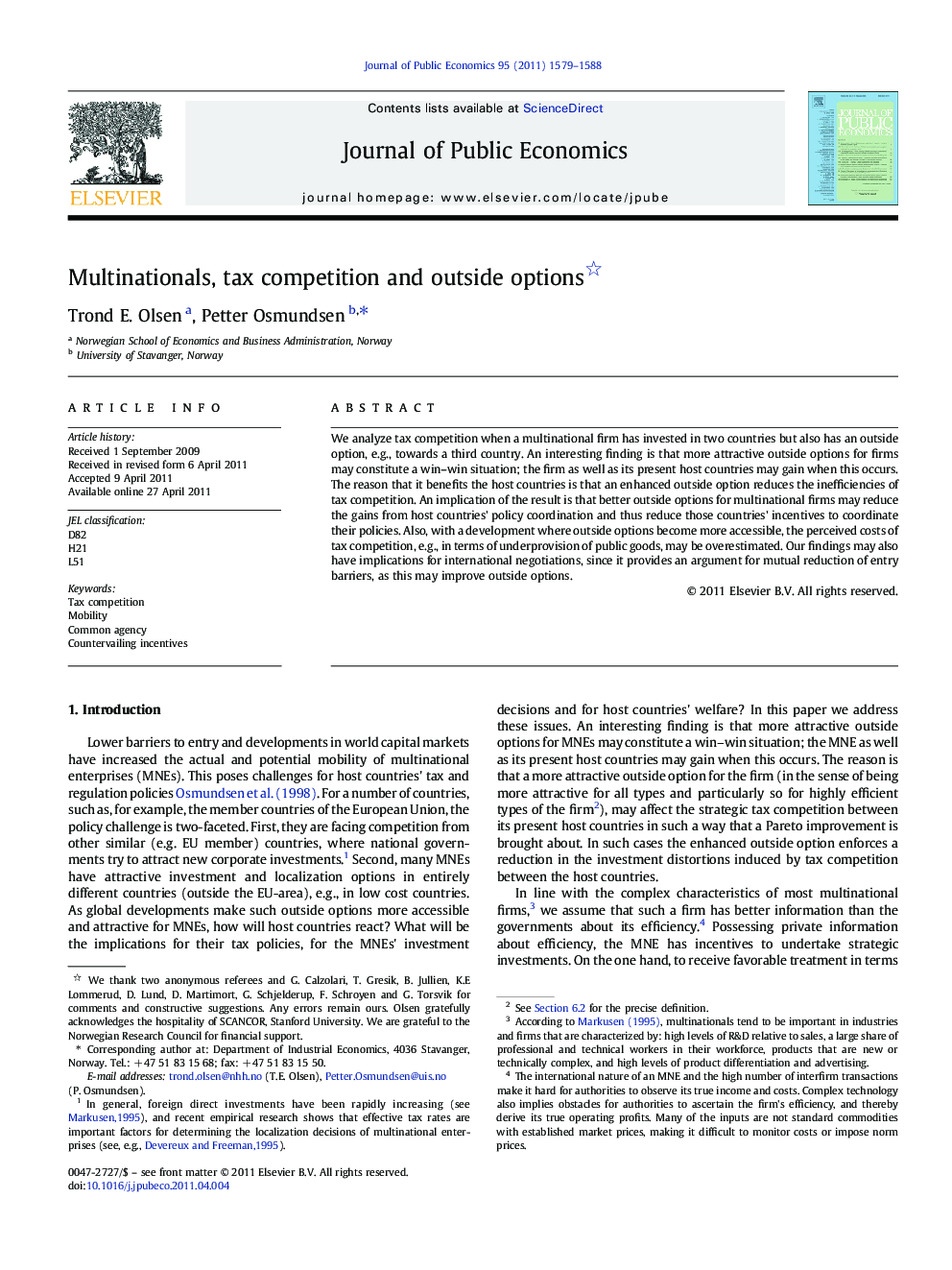| Article ID | Journal | Published Year | Pages | File Type |
|---|---|---|---|---|
| 969044 | Journal of Public Economics | 2011 | 10 Pages |
We analyze tax competition when a multinational firm has invested in two countries but also has an outside option, e.g., towards a third country. An interesting finding is that more attractive outside options for firms may constitute a win–win situation; the firm as well as its present host countries may gain when this occurs. The reason that it benefits the host countries is that an enhanced outside option reduces the inefficiencies of tax competition. An implication of the result is that better outside options for multinational firms may reduce the gains from host countries' policy coordination and thus reduce those countries' incentives to coordinate their policies. Also, with a development where outside options become more accessible, the perceived costs of tax competition, e.g., in terms of underprovision of public goods, may be overestimated. Our findings may also have implications for international negotiations, since it provides an argument for mutual reduction of entry barriers, as this may improve outside options.
Research highlights► An increase in the actual and potential mobility of multinational enterprises poses challenges for host countries' tax and regulation policies. ► More attractive outside options for firms may actually constitute a win–win situation; the firm as well as its present host countries may gain when this occurs. ► The reason that an enhanced outside option benefits the host countries is that it reduces the inefficiencies of tax competition. ► Better outside options for multinational firms may reduce the gains from host countries' policy coordination and thus reduce those countries' incentives to coordinate their policies.
